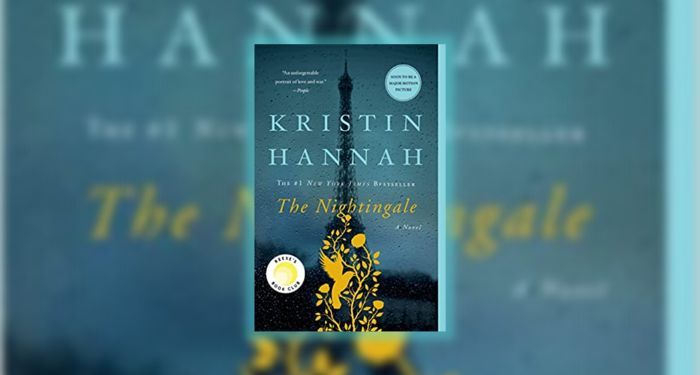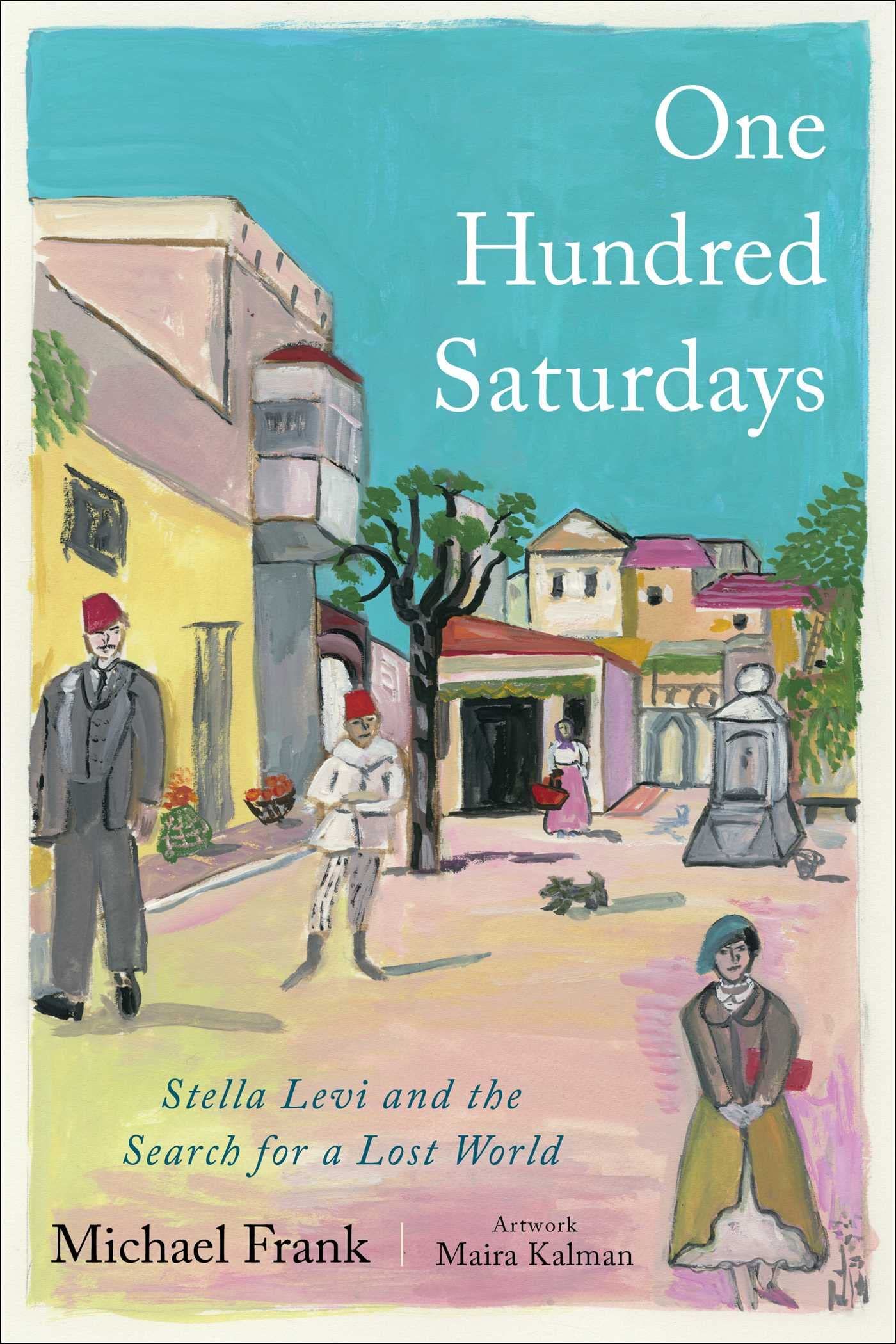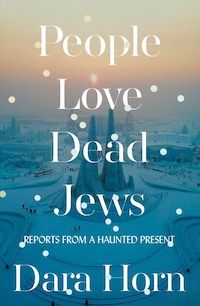Dear Reese (can I call you Reese?),
I recently saw your #ReesesBookClub announcement where you revealed Kristin Hannah’s book The Nightingale as your March book club pick. Normally, I wouldn’t have even given it a second thought. But I watched the video because a fellow Rioter mentioned that the book was ostensibly chosen in response to rising antisemitism (as you referenced in the announcement). Oh, and just a note for your captions: antisemitism is one word, and you can read why here.
But before we get into the book choice, let me say this: as a Jewish parent raising a Jewish child, I appreciate you speaking up about antisemitism. I appreciate you wanting to make this relevant to readers, and to show them how dangerous antisemitism is, and that it is a very real and growing problem in the US. It’s too easy to ignore if it doesn’t affect you or to brush it off, and you aren’t. So for that, I thank you and applaud you.
Which is why it pains me to ask: are there any Jews on your book club team? Because I’m starting to think there’s not. I’ll be blunt: this is not the best book to choose if you want to address antisemitism. Let me explain why, and then I’ll share some of my favorite alternatives.
Kristin Hannah might be a delightful person and a wonderful writer. But she’s not Jewish, from what I’ve read and from everything I’ve gleaned from articles and social media. She admits that she has no personal experience or ties with WWII. She was drawn to the women who rescued Jewish children because of her own experience of being a mother. While I can understand that, it’s also not quite the same. You would not choose a white writer if you were interested in addressing racism, would you? Or an author who is not Muslim if you wanted to address Islamophobia, right? Why, then, is choosing a non-Jewish writer okay if you’re trying to raise awareness of antisemitism? The very least you could do is choose a Jewish writer.
In one interview, she says that being a hidden child is still not talked about a lot. Well, if you’re not in Jewish circles, I guess it’s not. But I can tell you that so many of us have grown up with stories. Stories of hiding. Stories of rescuers. These are stories we hear each year during Yom Hashoah events at our synagogues, or stories we know of friends’ families. I grew up knowing that several of my teachers escaped. I grew up spending hours at the houses of my friends’ grandparents, who had numbers on their arms. Multiple classmates had grandparents who were survivors. This was commonplace. So I admit, it gave me pause when I read that.
Then there are the main characters in the book: Vianne and Isabelle, our heroes. There were many, many Righteous Among the Nations – tens of thousands, in fact, who saved countless lives. That is surely something to honor. That’s what this book honors. The book centers non-Jewish rescuers, not Jewish individuals. So it’s an odd choice if you’re trying to focus on antisemitism.
And the topic. WW2 and the Holocaust. Yes, it’s an important historical event. Yes, there is a shocking lack of Holocaust education. Yes, an alarming number of young people don’t know much about the Holocaust at all. But good lord, please don’t reduce us to one of the worst events in our history. We are more than that. (I’ve written about that here!). It’s really important to recognize that antisemitism doesn’t have to escalate to Third Reich proportions to be really shitty. Things aren’t great right now for us. Some Jewish people don’t feel comfortable wearing their Star of David or Chai necklace outside their shirts, or are nervous wearing a kippah. Orthodox Jews, who are more visibly Jewish than many other Jews, have consistently been targeted for years, most recently when two men were shot in separate incidents by the same person. A recent study found that one in four hiring managers admitted they’re less likely to move forward with a Jewish applicant for a job. It’s the everyday small cuts, the microaggressions, the comments people make without realizing who they’re talking to, the news stories or videos people send with good intentions – but you know what they say about good intentions, right? These things add up. It’s the sometimes overwhelming decision about whether to go to synagogue in person or attend via zoom. It’s the worry after dropping my son off at Hebrew school.
But why focus on our victimization? We are a vibrant people, with amazing holidays, traditions, and a long legacy of survival. Acknowledging atrocity is important, but so is embracing joy, because that in itself can be an act of resistance and reclamation. Learning about, recognizing, and fighting antisemitism doesn’t always have to come in the form of Holocaust lit or Holocaust education.
Some Recommendations
If you still really want to read Holocaust lit, there’s plenty from which to choose. If you’re going to choose WW2 lit, why not go with a memoir? There are stories that more people need to hear – true stories, not novels, where it’s easy for people who might not know enough to brush things off as fiction. Why not choose Michael Frank’s One Hundred Saturdays: Stella Levi and the Search for a Lost World, a nonfiction book about Levi, who is a Sephardic Jew and a Holocaust survivor. Another great option: Gerda Weissmann Klein’s All But My Life.
These stories challenge us to bear witness. To recognize what they survived. If you want a WW2 story, in my opinion it’s more respectful to choose a true story, instead of what I see as voyeuristic WW2 lit.
But you’ve read plenty of nonfiction for your book clubs before, so why not do that now? Dara Horn’s People Love Dead Jews: Reports From A Haunted Present is a brilliant and blistering look at antisemitism today. Bad Jews: A History of American Jewish Politics and Identities by Emily Tamkin is an incisive look at Jewish identity in the US, entangled with this country’s long, long history of antisemitism.
If you still prefer fiction, Rena Rossner’s The Light of the Midnight Stars illustrates the insidious nature of antisemitism, woven together with fairytales and Jewish folklore. Any of Naomi Ragen’s books are amazing, but what about The Sisters Weiss or Jephte’s Daughter? Books that show Jewish tradition, Jewish lives, and Jewish joy.
(Just as a side note, I know you typically choose books that center women, but Michael W. Twitty’s Koshersoul: The Faith and Food Journey of an African American Jew would also be an amazing choice. His insights about Jewish identity, his journey, and antisemitism are much needed these days. For your YA book club, why not choose Veera Hiranandani’s How to Find What You’re Not Looking For, a novel by a Jewish author that discusses antisemitism without being about the Holocaust?)
One last thing – The Nightingale has over one million ratings on Goodreads. It doesn’t need your endorsement. Perhaps your clout would be better served lifting up a lesser-known book/author.
I know you’ve made your book club choice, and I see and applaud your work in fighting antisemitism – and thank you for your allyship. I just wish our history, our stories, and our survival weren’t constantly reduced down to WW2. At the very least, a book by a Jewish author, centering Jewish characters, would have been a better choice.
For those of you who actually want to read books by Jewish authors, centering Jewish characters, check out Matzah Book Soup Book Club.
Reese, if you need book suggestions, you know where to find me.
Jaime
If you’re looking for more books by Jewish authors, check out these Jewish fantasy books, and this post about 100 must-reads of Jewish fiction.


